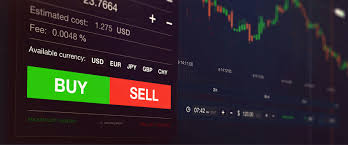
Comprehensive Guide to Forex Trading Platforms
Forex trading platforms are essential tools for traders looking to navigate the complex world of currency trading. Whether you are a beginner or an experienced trader, understanding how these platforms work can significantly enhance your trading experience. In this guide, we’ll explore what forex trading platforms are, the different types available, key features to look for, and tips on choosing the right platform for your needs. Additionally, if you are interested in trading with reputable services, you can check out forex trading platform Forex Brokers in Indonesia for insights.
What is a Forex Trading Platform?
A forex trading platform is a software application that enables traders to access the forex market, execute trades, and manage their trading accounts. These platforms provide traders with the tools to analyze market trends and make informed decisions. They can be web-based, downloaded to a computer, or available as mobile applications.
Types of Forex Trading Platforms
Forex trading platforms can be categorized into two main types: proprietary platforms and third-party platforms.
1. Proprietary Platforms
Proprietary platforms are developed by brokers and are often tailored to meet the unique needs of their clients. Such platforms might offer specialized features or tools that are not available on third-party platforms. Despite their unique offerings, they may lack the flexibility and extensibility found in more widely-used platforms.
2. Third-Party Platforms
Third-party platforms are developed by independent software companies. The most popular third-party platforms in the forex market include MetaTrader 4 (MT4), MetaTrader 5 (MT5), and cTrader. These platforms are known for their user-friendly interfaces, advanced trading features, and community support.
Key Features to Look for in a Forex Trading Platform
When selecting a forex trading platform, it’s essential to consider several key features to ensure it meets your trading needs:
1. User Interface
The platform’s user interface should be intuitive and easy to navigate. A user-friendly interface is vital for both beginners and experienced traders, as it allows for efficient execution of trades without unnecessary complications.
2. Charting Tools and Technical Indicators
Comprehensive charting tools and a wide range of technical indicators are essential for analyzing market trends. A good forex trading platform should allow traders to customize their charts and apply various technical indicators to evaluate price movements effectively.
3. Order Types
Different order types can significantly impact trading strategies. Look for platforms that offer various order types, including market orders, limit orders, stop-loss orders, and trailing stops, to accommodate diverse trading strategies.
4. Security Features
Security is crucial when it comes to trading platforms. Ensure that the platform employs strong encryption methods, provides two-factor authentication (2FA), and is regulated by a reliable authority to safeguard your funds and personal information.
5. Mobile Trading Capabilities
In today’s fast-paced trading environment, having the ability to trade on-the-go is vital. Look for platforms that offer robust mobile applications with full functionality, allowing you to execute trades from anywhere at any time.

6. Customer Support
Reliable customer support can make a significant difference, especially for new traders. Choose a platform that provides prompt and effective support through various channels, including live chat, phone, and email.
7. Fees and Spreads
Different platforms charge varying fees, including spreads and commissions. Be sure to compare costs across different platforms to find one that offers competitive fees without compromising on features.
Top Forex Trading Platforms
Here are some of the most popular forex trading platforms, each with its unique features:
1. MetaTrader 4 (MT4)
MetaTrader 4 is arguably the most famous trading platform in the forex industry. It offers a wide range of technical analysis tools, automated trading capabilities through Expert Advisors (EAs), and a user-friendly interface. Its community support and extensive resources make it ideal for both beginners and advanced traders.
2. MetaTrader 5 (MT5)
MetaTrader 5 is the successor to MT4 and comes with enhanced trading features, including additional technical indicators, an economic calendar, and support for more asset classes. It also allows for more complex order types and faster execution.
3. cTrader
cTrader is known for its intuitive interface and advanced charting capabilities. It offers features such as one-click trading, algorithmic trading tools, and a robust community for sharing trading ideas. Many traders appreciate its transparency and low latency.
How to Choose the Right Forex Trading Platform
Choosing the right forex trading platform involves evaluating your trading style, needs, and objectives. Here are some steps to help you make an informed decision:
1. Identify Your Trading Goals
Consider your trading goals, risk tolerance, and level of experience. If you are a beginner, look for a platform with educational resources and demo accounts to practice without risking real money.
2. Compare Features
Make a list of the features that are essential for your trading. Compare different platforms based on the key features discussed above to find one that aligns with your needs.
3. Test the Platform
Many brokers offer demo accounts. Take advantage of this to test different platforms without financial risk. This will allow you to assess the user interface, order execution speed, and overall performance.
4. Read Reviews
Look for reviews from other traders to get insights into the platform’s reliability, customer support quality, and any potential issues. Websites and forums can provide valuable information in this area.
5. Consider Funding and Withdrawal Options
Examine the available funding and withdrawal methods to ensure they align with your preferences and that the process is smooth and secure.
Conclusion
A forex trading platform is a crucial component of your trading journey. By understanding the different types of platforms, their features, and how to choose the right one, you can significantly enhance your trading experience. Remember to start with a demo account to practice and become familiar with the platform before engaging with real funds. Happy trading!

